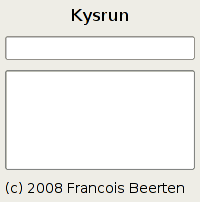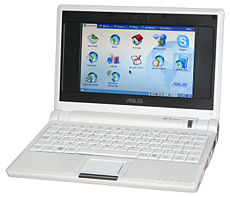 Photo by Giant Ginkgo
Photo by Giant Ginkgo
When buying hosting for the IRC logger, the provider offered the free
registration of a domain name. As this looked like a good deal, I registered
the colabti.de domain.
But the provider did not tell that it will cost 12€ each year to renew.
There are cheaper options, but the hosting provider manages everything and I
never bothered to look elsewhere.
Three years later, on february 1st 2008, the bill for the renewal of the
colabti.de domain arrived. As always, I trustfully paid immediately and
expected to be done with it for one extra year.
But a few days later, the february 6th, this message arrived in the
email:
Sehr geehrte Damen und Herren,
über uns haben Sie die
Domain: colabti.de
registriert.
Gemäß den deNIC Registrierungsbedingungen (VIII.,
http://www.denic.de/de/richtlinien.html) muss der Domaininhaber seinen Wohnsitz
in Deutschland haben.
Aktuell sind wir als Domaininhaber eingetragen (TRUSTEE-Service). Dieser
Service ist jedoch ab März 2008 kostenpflichtig.
Sie haben die Folgenden Optionen:
- Sie benennen uns eine Person mit Wohnsitz in Deutschland, der Rechte und
Pflichten als Domaininhaber annimmt - Sie nutzen unseren Trustee-Service für 12
EUR / Jahr (=1 EUR / Monat) - Sie lassen die Domain loeschen.
Bitte lassen Sie uns innerhalb der naechsten sieben Tage ab heute eine
Information zukommen, wie in Bezug auf Ihre Domain verfahren werden soll.
Vielen Dank!
Mit freundlichen Grüßen / Kind regards
Easy to understand when you don't know German.
Luckily Google Translate can help. The text says that the domain owner must
have an address in Germany. As I don't live in Germany, they provide three
"solutions":
- Give the address of someone who lives in Germany who becomes responsible
for the domain name,
- Pay them 12€ per year starting in March to act as a proxy or
- Lose the domain.
Thus you pay for a domain renewal, and less than 5 days after you're asked
to pay again !
And they give you only seven days to answer. At short notice, I started a
search for other registrars for ".de". Most of them tell you about that special
condition for the ".de" domains before you try to register. A few also offer
that German address proxy service for people not living in Germany.
To rescue the "colabti.de" domain, I ordered a domain transfer at
europeregistry.com, a subsidiary of instra. They needed a full week before
waking up and start the process of the transfer. And the transfer failed.
According to europeregistry.com the old registrar did not acknowledge the email
asking for confirmation. The old registrar says that no confirmation emails are
needed for ".de" domain transfers. Who tells the truth ?
To get rid of all that trouble once and for all, I registered a new domain:
colabti.org. Hopefuly, the old colabti.de domain will survive long enough for
everyone to update his links and bookmarks.
By the way, if you live in Germany and want to help keep the colabti.de
domain alive, please contact me.
 Photo by Jurek D.
Photo by Jurek D.


 Photo by
Photo by